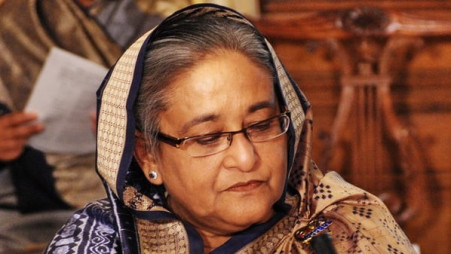No mastermind behind anti-discrimination movement: Asif Mahmud at ICT
He says protesters communicated through Facebook, WhatsApp

There was no chief or mastermind behind last year's anti-discrimination student movement, Youth and Sports Adviser Asif Mahmud Sajib Bhuiyan told the International Crimes Tribunal-1 (ICT-1) today (16 October).
"No political party guided us. We all had equal roles as coordinators," he told the tribunal during cross-examination in a case filed over the killing of six people at Dhaka's Chankharpul area during the July-August 2024 uprising.
He added that the protesters communicated through Facebook and WhatsApp. When asked if cases were filed against them, he said several, including one at Shahbagh Police Station, had been lodged.
Responding to a question on whether foreign influence was involved in the "one-point demand" movement, Asif said there was none. "We made that decision ourselves. Protesters raised funds to run the movement," he told the tribunal.
Asif appeared as the tribunal's 19th prosecution witness and was cross-examined by defence counsel Saddam Hossain Avi, who represents former Shahbagh Police Station officer-in-charge (operations) Md Arshad Hossain, one of the accused.
When Avi asked how far Asif was from the scene where police opened fire at Chankharpul on 5 August, Asif replied, "I was about 200 metres away." When the lawyer suggested that he could not have witnessed the shooting from that distance, Asif dismissed the claim as false.
After his testimony, journalists outside of the tribunal asked him, as the chief prosecutor has said, given the scale of Sheikh Hasina's crimes and the killing of 1,400 people, she deserves the death penalty 1,400 times, does he agree with that.
In response, Asif said, "Those 1,400 people were killed during the mass uprising. But over the past 17 years, countless more have been killed, there's no way to keep track of them all. We are now receiving various lists. Before this, we witnessed the BDR massacre and the Shapla Chattar killings."
"We have seen the horrors of Aynaghar. So, if you were to hold a separate trial for each victim, this process would never end - even until the Day of Judgment."
"We demand exemplary punishment for Sheikh Hasina and all those involved in these misdeeds, on behalf of all the victims. We hope justice will be ensured."
Regarding the police deaths during the July Uprising, he added, "I was asked whether, in the case of six murders in Chankharpul, any police officer was killed or injured there. To my knowledge, no police officer was killed or injured in that incident."
"As for the claims being made about casualties nationwide, the information is unclear. I don't have any specific knowledge about that—that is exactly what I told the court," he added.
Asif Mahmud's first day of testimony was recorded on 9 October. That session ran from 2:45pm to 5pm but could not be completed, prompting the tribunal to fix today for continuation.
During his earlier statement, Asif described the background of the July-August uprising and detailed the alleged brutality of law enforcement at Chankharpul on 5 August 2024. He also claimed that he had been abducted at night by men identifying themselves as Detective Branch (DB) officers.
In that testimony, he held former prime minister Sheikh Hasina, former home minister Asaduzzaman Khan Kamal, and several senior police officials directly responsible for the incidents.
The four accused in custody are former Shahbagh OC (operations) Md Arshad Hossain, constables Md Sujan Mia, Md Imaz Hossain Imon, and Md Nasirul Islam.
The absconding accused include former Dhaka Metropolitan Police commissioner Habibur Rahman, former joint commissioner Sudip Kumar Chakrabarti, former additional deputy commissioner of Ramna region Shah Alam Md Akhtarul Islam, and former assistant commissioner of Ramna region Md Imrul.
On 14 July, ICT-1 framed charges against all eight accused – four in custody and four fugitives – formally launching the trial over the Chankharpul killings.



 Keep updated, follow The Business Standard's Google news channel
Keep updated, follow The Business Standard's Google news channel

















